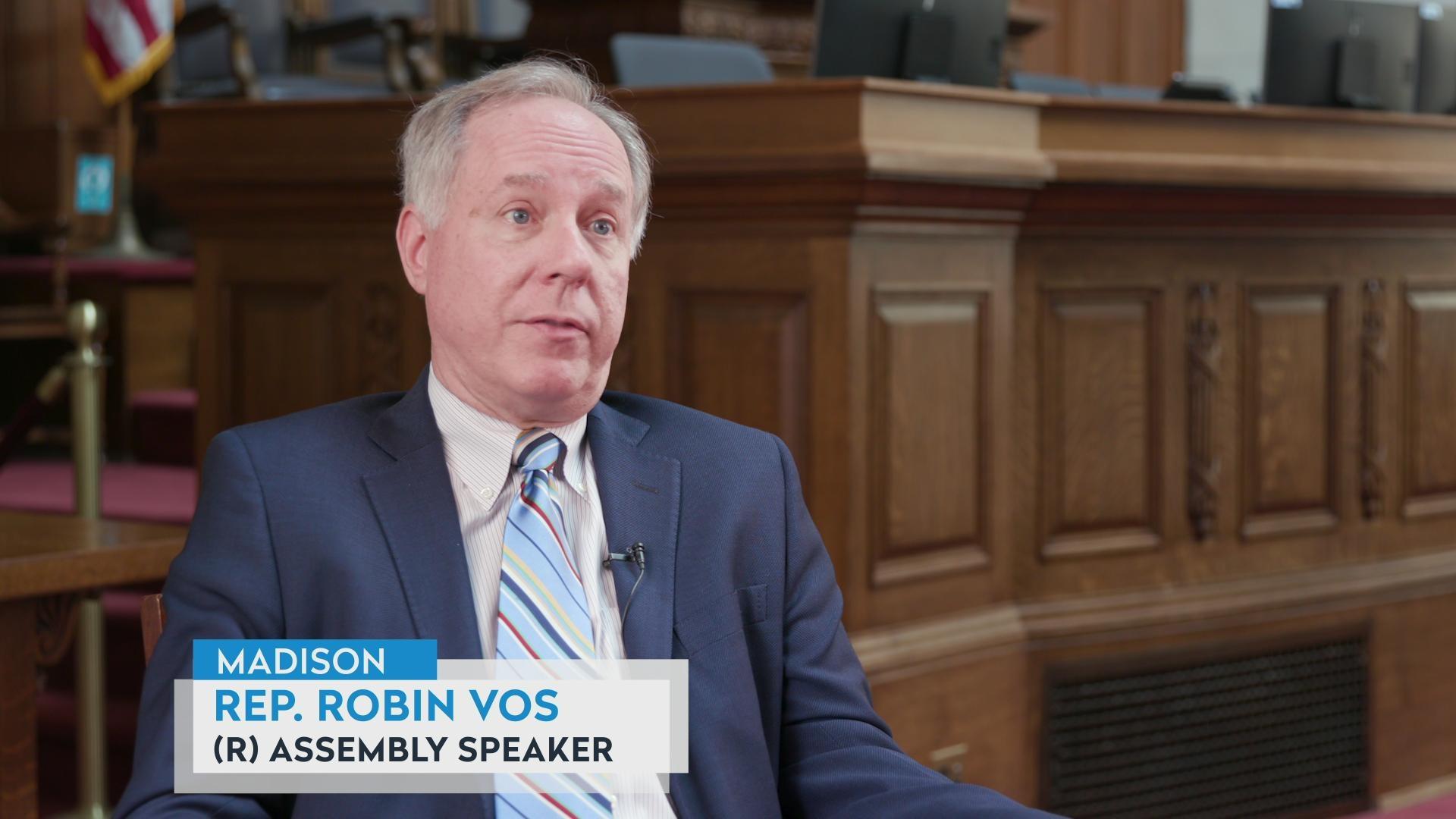Frederica Freyberg:
Governor Evers’ proposed budget for K-12 education calls for big increases in public school funding. It would hike overall funding by nearly $1.4 billion over two years, including a more than $600 million increase for special education. $64 million more for mental health and school safety, that $44 million for bilingual services and $38 million more over two years for rural and urban districts. The executive budget proposal would also ensure all districts get a minimum level of state aid set at $3,000 per pupil. And it would cap the number of students who attend private school on state vouchers at current levels. In tonight’s closer look, we check in with school finance expert Julie Underwood, UW-Madison professor of education and law. Thanks for being here.
Julie Underwood:
Thank you for having me.
Frederica Freyberg:
My first question is how closely does this proposed budget on the part of Governor Evers hew to the recommendation of the bipartisan blue ribbon commission on school funding?
Julie Underwood:
That’s a great question because this budget and the blue ribbon commission was really giving me hope for bipartisan support of a good budget. As a matter of fact, we’ve put together a Venn diagram showing how the two of these actually intersect. How the governor’s budget and blue ribbon commission recommendations are similar. They’re incredibly similar. Their support for special education increases, their support for bilingual education increases. Their support for general overall increases for school funding. And also there is support for increases in terms of the spending limits or the school levies.
Frederica Freyberg:
Still what is your expectation that this kind of major funding increases for public K-12 school passes the budget process? Because right now Republican leaders are pushing back on this
Julie Underwood:
I know that at the very first Joint Finance Committee hearing here in Madison, that Senator Nygren actually called this budget proposal irresponsible. I don’t think it’s irresponsible at all. As you were just giving the numbers, this is in a context of a $1.6 billion budget cut in 2010. Today, our spending for public schools actually is less than our spending was in public schools in 2011. And we had a $1.6 billion budget cut in 2010. This wouldn’t move us past that. We’re just looking to restore the budget that was cut. I don’t think it’s an irresponsible budget. I think it’s irresponsible to cut school funding so significantly and to let it languish year after year.
Frederica Freyberg:
Specific to the English learners that Marisa reported on, what has it done to districts who’ve had to pull out of their general budget to make up for these unfunded or mostly unfunded mandates around services for these English learner students?
Julie Underwood:
Well that’s true for two categories of students. English learners and actually for students who have special needs as well, special education students. So if we start with English language learners, we are the last in the nation in terms of state support for bilingual education or English language learner support. We had a national expert who came to talk to the blue ribbon commission and categorized us at pitiful in terms of the support that we provide for bilingual education. That’s not good for learners. That’s not good for students. That’s not good for communities. But it’s also not good for schools and other learners as well because like special education, bilingual services are mandated, federally mandated services. That means we provide services to a certain level. In public schools, public schools provide services to a certain level. If there are costs that are greater than what they receive from the state and the federal government, those come straight out of the general education budget. When you add money to fill that gap, it releases money for services for all students.
Frederica Freyberg:
In your mind what is the most important prong of Governor Evers’ proposed K-12 budget?
Julie Underwood:
It’s hard to pull apart because you know, you pull one thread and these are all connected together. These are all about children. Children have different facets. They may be low income. They may be in a rural area. They may have special needs. Those are faucets of a child. Honestly, I believe that we have great hope to have the special education state money increased. We’re currently at a reimbursement rate for special education services at less than 25%. That’s gone down every year over the last 10 years when that pool of money was frozen. Right now, in the state of Wisconsin school districts pull about, cumulatively, about a billion dollars out of their regular education budget to fill their special education needs or to fulfill their special education needs. So that’s a billion dollar cut for other kind of services. We have bipartisan support for this one. Plus the Marquette poll just this week indicated we have a lot of political support from the general public for increasing special education reimbursement.
Frederica Freyberg:
And yet, as to that push back by some of the Republican leaders and budget writers, do you think this is at all a case on the part of the Evers Administration of asking for the moon and hoping to negotiate something that at least takes the edge off?
Julie Underwood:
No. No. This is a responsible look at what our children need, what our communities need. It isn’t asking for the moon. It’s not asking for twice what you need and then being willing to settle for much less. We transfer a billion dollars. Those services are cut out of other budgets. They’re federally mandated. Something we absolutely need. And in the state of Wisconsin, we’re among the last in terms of state support for special education. I think that’s irresponsible. I think that’s sad. We’ve had a history in the state of Wisconsin of being a leader for special education and for early childhood. Right now, we’re ranking among the last in the nation in those areas.
Frederica Freyberg:
We need to leave it there, Julie Underwood. Thank you.
Julie Underwood:
Thank you very much for having me.
Search Episodes
News Stories from PBS Wisconsin

Donate to sign up. Activate and sign in to Passport. It's that easy to help PBS Wisconsin serve your community through media that educates, inspires, and entertains.
Make your membership gift today
Only for new users: Activate Passport using your code or email address
Already a member?
Look up my account
Need some help? Go to FAQ or visit PBS Passport Help
Need help accessing PBS Wisconsin anywhere?

Online Access | Platform & Device Access | Cable or Satellite Access | Over-The-Air Access
Visit Access Guide
Need help accessing PBS Wisconsin anywhere?

Visit Our
Live TV Access Guide
Online AccessPlatform & Device Access
Cable or Satellite Access
Over-The-Air Access
Visit Access Guide
 Passport
Passport


















Follow Us